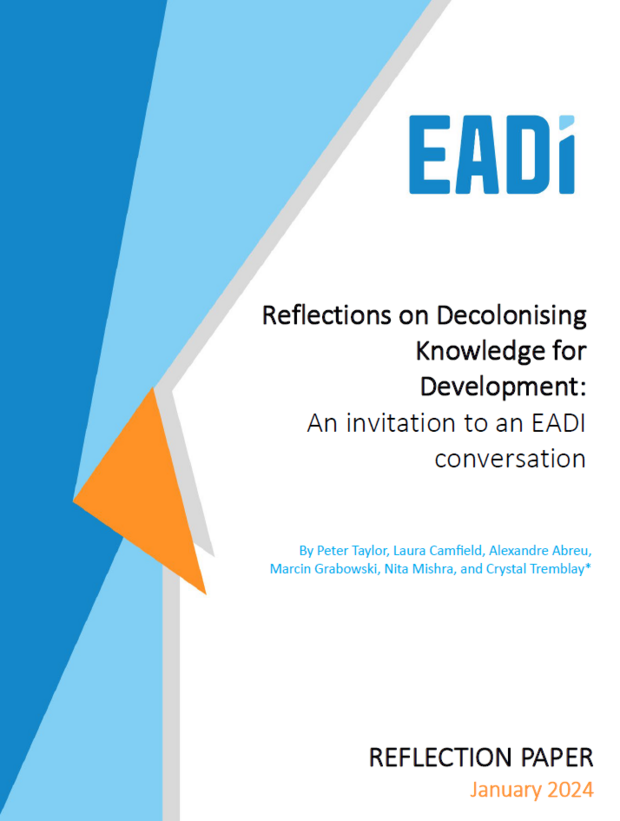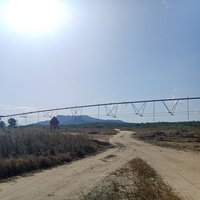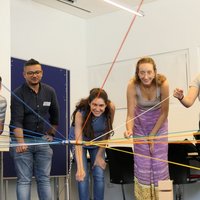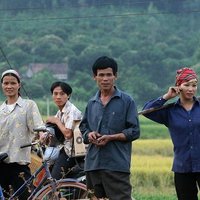 Task Group Decolonising Knowledge for Development
Task Group Decolonising Knowledge for Development
Many who believe Development Studies was born from a colonial mindset also perceive this mindset continuing to this day. Calls to decolonise not only Development Studies, but social sciences more broadly and beyond (including the natural and applied sciences), have grown louder in recent years. But it is also possible to see Development Studies as driven by an anti-colonial mindset from its emergence in the ferment of 1950s/1960s independence movements and orientation towards global solidarity. So, is Development Studies a neo-colonial endeavour, an anti-colonial endeavour, or a shifting, transforming and, sometimes, perplexing combination of both? How does this inform how, and under which contexts, development is pursued? And what are the implications for EADI’s engagement in efforts to decolonise knowledge for development?
In a period of intense global turbulence, this seems an important time for EADI to reflect on such issues, given it is an Association which brings together a diverse array of organisations, people, histories and perspectives. Its members bring a wealth of different influences and experiences of coloniality, located within the context of Europe which, itself, continues to evolve and change. Indeed, it is important to learn from ways in which citizens in a range of different national contexts experience emergent forms of colonisation, as well as those with longer historical antecedents. There is a need to be conscious of the dangers of EADI’s attention to these issues now as being perceived as yet another form of intellectual colonisation. EADI therefore represents an incredibly valuable resource of knowledge and experience to help inform and shape collective thinking around processes and approaches that can support decolonisation without reproducing it in yet new ways.
As EADI approaches that significant moment, what do others feel about the ideas and potential actions shared above? What suggestions, evidence, insights, and concrete proposals would others like to bring to this conversation? This is the invitation to discuss and contribute.
View the Stories
Reflecting on our Lens: Decolonising Imagery within International Development
James Andrews, Communications Officer, University of Sussex

Amidst Post-Colonial Continuities and Global Power Shifts: What Role for the IDOS Postgraduate Programme for Sustainability Cooperation?
Simone Christ, German Institute of Development and Sustainability (IDOS)

Decolonizing Policy Advice: The Oxymoronic Nature of Danish Researchers Advising a Danish Ministry on a Danish Plan for Africa
By Adam Moe Fejerskov, Mikkel Funder and Nauja Kleist, Danish Institute of International Studies

Feeling the Colonial: Affective Decolonisation in Development Studies Classrooms
By Carla Maria Friederike Diem, University of Amsterdam & Institute of Development Studies

Decolonizing Expertise: Reflections on Power, Knowledge, and Governance in International Organizations (IOs)
By Marine Gauthier, Graduate Institute, Geneva
Listen to the Podcasts
Watch the Video
Reflection pieces
Activities
Task Group
Peter Taylor, Institute of Development Studies, Brighton (Chair)
Alexandre Abreu, University of Lisbon
Laura Camfield, University of East Anglia
Adam Moe Fejerskov , DIIS - Danish Institute for International Studies
Eyob Balcha Gebremariam, University of Bristol
Marcin Grabowski, Jagiellonian University of Krakow
Susanne von Itter, EADI
Basile Boulay, EADI
Anna Khakee, University of Malta
Touseef Mir, University Bath
Nita Mishra, University of Limerick
Hugo Pilkington, Université Paris 8 (Vincennes Saint-Denis)
Eija Ranta, University of Helsinki
Alfredo Saad-Filho, Queen's University Belfast
Andy Sumner, King's College London
Recommended Reading
Challenging Global Development. Towards Decoloniality and Justice
This open access book, part of the EADI Global Development series, presents contributions to decolonize development studies. It seeks to promote and sustain new forms of solidarity and conviviality that work towards achieving social justice.
What is Development Studies?
Development Studies is an established area of scholarly enquiry, which implies some consensus over what the study of development entails. Does such a consensus exist? This EADI paper argues that although there is some common understanding on Development Studies being about ‘development’ and having an inter-disciplinary as well as normative orientation, there is a set of quite different approaches to Development Studies.
Four approaches to shifting mindsets for decolonising knowledge
In the context of knowledge for development, what does it require to deconstruct the dominant narratives and personal privileges embodied in our race, class, gender, etc.? And, in a knowledge landscape littered with potential minefields, how do we go about shifting the mindsets that shape the ways in which ‘we’ understand the world and our subsequent values, behaviours, and attitudes? Learn more




















